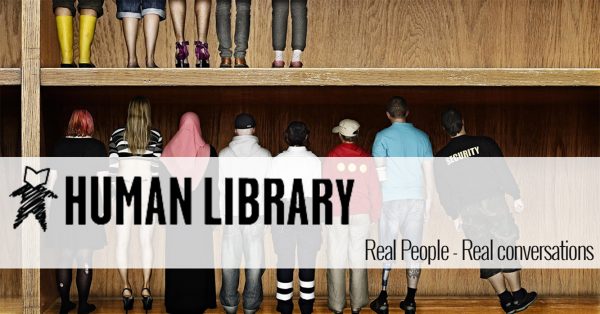Staff Writer
We all have stories we want to share with others.
So what would happen if everyone became a living book and could tell those stories?
The idea of a living book isn’t so far fetched and, in fact, is coming to WCC on March 7.
WCC’s Richard W. Bailey Library, in partnership with the Office of Student Diversity and Inclusion, Priorities One Committee, Student Activities Office and the Counseling and Student Resources Center will be hosting the first Human Library at WCC.
The Human Library replaces books with actual people.
But how does the Human Library Work?
Students, faculty and staff volunteer to become the kind of book that other people can check out at the library. Instead of reading, the human book engages in one-on-one conversations with the reader lasting approximately 10–15 minutes and answering any questions they might have.
“This is a chance for people to share their personal experiences or the impact they have on their family or how it affects their everyday lives. You would listen to their stories and ask follow-up questions,” said Bethany Kennedy, Director of Access Services and one of the organizers of the Human Library.
“Right now, we’re looking for people to be books. They would fill out an application and then attend a training. We give them tools to handle it if they run into difficult questions,” Kennedy shared.
The Human Library was started in 2000 by brothers Ronni Abergel and Dany Abergel, along with Asma Mouna and Christoffer Erichsen. The initial event was a project for the Roskilde Festival but grew worldwide within a few short years.
It was held for four days, eight hours a day, and over fifty individuals served as books. The impact stunned the organizers when they realized over a thousand readers had participated.
“Sometimes you see someone in the supermarket and think things about them, but you don’t dare go ask them questions,” Abergel said to a report for Today.com. “I wanted to build a space where you can ask them anything because they volunteered to answer.”
Many of the Human Library events are held in communities and encourage marginalized members to be a book. The aim is to provide space for dialogue among people with the hope that these experiences will help to dispel stereotypes.
Story topics vary, but could include drug addiction, racism, transgenderism, young single moms, molestation, refugee status, sexual abuse, unemployment, polyamory, Muslim faith, Christian faith, homelessness, naturism, atheism, baldness, deafness, sexism or being differently abled.
“The broad selection of books provides readers with ample choice to challenge their stereotypes,” says the Human Library website.
Individuals interested in volunteering to serve as a living book must apply by February 16. Application can be submitted at http://wccnet.libwizard.com/Human Library.
“And with all library books we expect them to be treated with respect and that you will return the book in the same condition you checked it out. This means respecting the book and if a book is uncomfortable and unable to answer some questions, to be respectful of that.”
So instead of checking out a printed, electronic or audio book, borrow a person at the Human Library on March 7.



